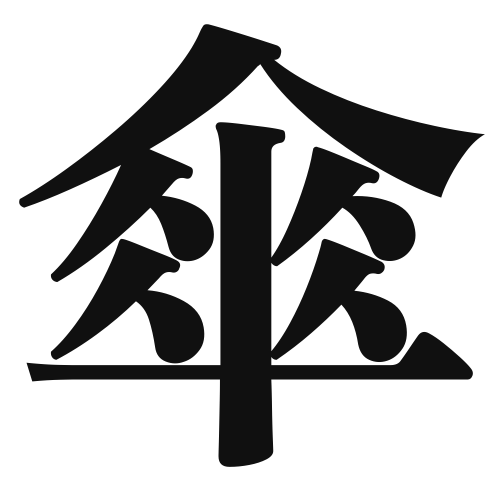1. Overview of Meaning
The kanji “傘” (kasa) means “umbrella.” It is used to refer to the object that provides protection from rain or sunlight.
2. Formation and Radical
The kanji “傘” is a phonetic-ideographic character (形声文字). It combines the radical “亻” (person) on the left, indicating a connection to people, and the character “傘” itself, which represents the object. The radical suggests that the umbrella is something used by people.
The radical for “傘” is “亻,” which is often associated with human-related actions or objects.
3. Examples of Usage
Common words and phrases that include “傘” are:
- 雨傘 (あまがさ, amagasa) – rain umbrella
- 日傘 (ひがさ, higasa) – sun umbrella
Example sentences in daily conversation:
- 「今日は雨が降るから、傘を持って行った方がいいよ。」
(“It’s going to rain today, so you should take an umbrella.”) - 「日差しが強いので、日傘をさして出かけます。」
(“Since the sun is strong, I will go out with a sun umbrella.”)
4. Synonyms and Antonyms
Similar kanji with related meanings include:
- 雨具 (あまぐ, amagu) – rain gear, which refers to various items used for protection against rain, including umbrellas.
Antonyms or contrasting kanji include:
- 晴れ (はれ, hare) – clear weather, which implies the absence of rain and the need for an umbrella.
5. Cultural and Historical Background
The umbrella has a significant place in Japanese culture, often associated with traditional festivals and ceremonies. In Japan, umbrellas are not only practical but also serve as decorative items.
Proverbs and idiomatic expressions related to “傘” include:
- 「傘をさす」 (かさをさす, kasa o sasu) – to open an umbrella, which can also metaphorically mean to provide protection or support to someone.
